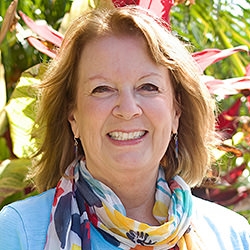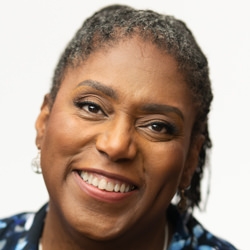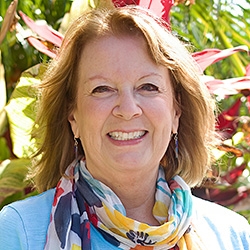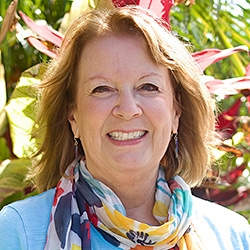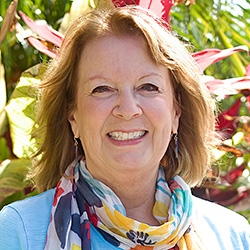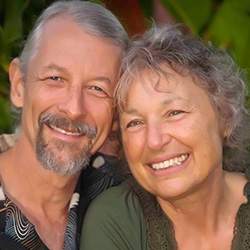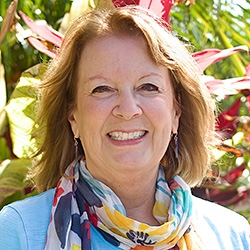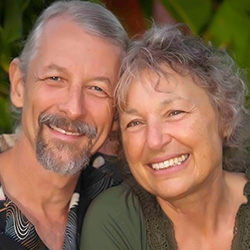

Search Results: choice
-
- Gain a deeper understanding of trauma through the lens of NVC
- Learn how to connect with ALL needs, even when we’ve been taught to suppress some of them
- Grow capacity to creatively move towards our deepest longings interdependently
- Discover how you can call people back to life when they are in the thick of patterned behavior
-
Marshall Rosenberg used to talk about every situation with the same level of joy a child might feel. This may seem impossible at first! But when you focus on all the ways something is hard, you miss out on the full experience and remove your sense of choice. In this video, Mary shares several benefits of positivity and lots of examples along the way.
-
Roxy Manning discusses the connection between the challenges parents face with their children and the qualities they want them to develop. She highlights the importance of aligning actions with desired outcomes, using the example that if parents value independence, they should encourage choice rather than demanding compliance. She encourages parents to consider the long-term impact of their parenting choices on shaping their children's future behavior.
-
Trainer tip: When you tell yourself that you have to do something, you're more likely to disconnect yourself from the needs you’re trying to meet, and also diminish the joy in your life. Instead, experiment with translating your “shoulds” and “have tos” into the need you are trying to meet.
-
Struggling to say "no"? Here are ways you change your adjacent mind patterns. First, note the differences between those who respect boundaries and those who often don't. Second, review situations in which you lost track of your choice. And rehearse what it would sound, look, and feel like if you kept connection to your choice. Third, seek validation of your experience - from a grounded and mindful (non-reactive) state.
-
NVC practice is based on several key assumptions and intentions. When we live based on these assumptions and intentions, self-connection and connection with others become increasingly possible and easy, helping us contribute to a world where everyone’s needs are attended to peacefully.
-
Trainer Tip: Mary shares an experience about accepting responsibility for her actions and how that lead her to greater choice and freedom.
-
Trainer Tip: When faced with doing a task that doesn't seem fun try saying to yourself something to the effect of “I do this activity because I value...”. Complete the sentence with related needs, then ask yourself if you still want to complete the task. This can take the demand out of the tasks. Next, choose accordingly. This can teach you about, or give you more access to, true choice in life.
-
Why is it so difficult to change our patterns even when we want to, even when we experience shame or despair about them? Arnina Kashtan offers some of the common pitfalls and concrete steps to overcome them in the future.
-
Learn to recognize four forms of thinking and speaking that are likely to lead to disconnection.
-
Trainer Tip: Even when you hit deep emotional bottoms, instead of deciding whether something is good or bad, get clear on how you feel about it and what needs it will or will not meet. Let the Universe do the rest. Then take action to resolve any situations that are not enjoyable to you.
-
When we have an inner conflict, how can we bring ourselves closer where we want to be? Miki explains about how we can deepen our self understanding in a way that can transform our own reactivity, urges, and false either/or views -- so that we can bring in more presence, choice, and options.
-
Reducing overwhelm requires you to reconnect with your authentic choice, be present and compassionate with what's happening, heal trauma, and interrupt the trauma response. Read on for ways that may help you reconnect with your choice, presence and more on trauma.
-
True inner freedom arises from self-connection. Without self-connection, we're mostly acting from habits, and those habits do not necessarily attend to our own needs. Here's a practice you can explore in your daily life to deepen your relationship with yourself, and experience true choice and inner freedom.
-
As we head towards impending collapse the relative ease, comfort and freedom of the global north will be harder to maintain. Because of growing anxiety including from people with systemic power, we can anticipate increasing attempts at authoritarian control over the population. We can see what's occurring now as dry run practice for what's coming soon. What may help us: finding choice, knowing when to choose death, and walking towards community and life.
-
Whether privileged or not, its not easy to see the humanity of others in different social locations, especially if their actions have unwanted impacts and have left behind our humanity. Aiming for “both sides hearing each other” empathically, and to focus on effect rather than intent when we have more privilege, may theoretically lead to liberation. Yet, in practice it can reinforce rather than transcend power differences -- unless there's specific ways to focus attention and choice. Here, its important to transform expectations into working with willingness, and within our own terms and timetable.
-
You value generosity and you often give easily from the heart. There are those times, however, when you get snagged by a sense of obligation. You feel tense and resentful. You don't want to continue with this attitude, but how can you reconnect with the desire to give from the heart? Let’s touch on three essential elements that support giving from the heart: choice, mourning, and acceptance.
-
Jim and Jori discuss sharing power through exploring our experience of having and not having power, how we make choices about our power and examining our relationship to power itself.
-
Is it dangerous for large numbers of people to be absorbing disturbing news alone? Given the intensity of our times, making choices based on conscious awareness and discernment in relation to current events is essential for our ability to stay engaged, and to also wisely meet our collective challenges with agency and power. Here are five tips for how to help stay sane in relation to the news cycle.
-
Where do you feel desperation, resentment, anger about your partner's choices? What do you want to demand of them? Rather than looking for what they're suppose to do, look for your feelings and needs, how would you would respond if you trusted your needs could be met without your partner, and what you choose to do given what your partner offers and does not offer.
Quick Links

Stay in Touch!
We value your privacy, won't share your email address and you can easily unsubscribe any time.


